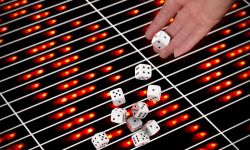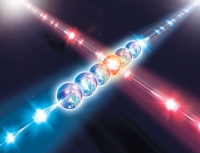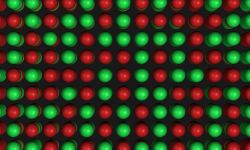
Through randomly selected measurements, Austrian physicists can determine the quantum entanglement of many-particle systems. With the newly developed method, quantum simulations can be extended to a larger number of quantum particles. In the Science Magazine, the researchers report on the first successful demonstration of this method developed by physicists from Innsbruck, Austria.

A localization phenomenon boosts the accuracy of solving quantum many-body problems with quantum computers which are otherwise challenging for conventional computers. This brings such digital quantum simulation within reach on quantum devices available today.

In a quantum simulator, an international team of researchers was able to investigate the properties of different quantum phase transitions. Due to the complexity of the processes, these dynamics were not experimentally accessible until now. The researchers report their findings in the journal Nature.

Last year marked the 20th birthday of a remarkable paper that has changed the entire field of quantum physics. Experimental physicist Immanuel Bloch describes the significance of this paper by Dieter Jaksch, Christoph Bruder, Ignacio Cirac, Crispin Gardiner, and Peter Zoller in a recent review in Nature Physics.

Experimental physicist Petar Jurcevic, a former member of Rainer Blatt’s research group, will receive the IQOQI Dissertation Prize 2018. This is already the fifth time that this prize, valued at 1,000 Euro, will be awarded. It honors scientifically outstanding accomplishments in the field of quantum physics.